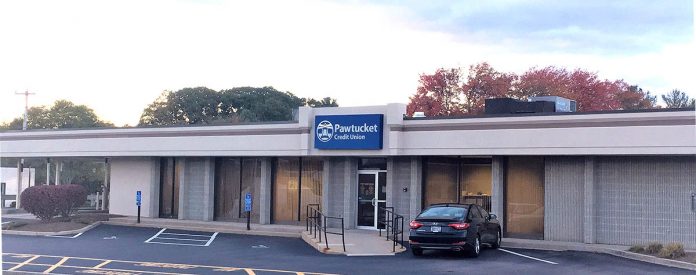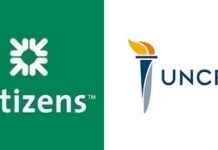
PROVIDENCE – The initial surge in applications from small business owners clambering to get their shares of a federal payroll relief program have abated and local lenders are turning attention to closing agreements and depositing the money into the hands of borrowers.
But another potential wrinkle in the already chaotic rollout of the U.S. Small Business Administration’s Paycheck Protection Program could emerge Friday as the program opens to the self-employed and independent contractors, who were previously excluded from the initial April 3 launch.
In a Facebook Live on Wednesday hosted by R.I. Commerce Corp. featuring Mark Hayward, director for the SBA Rhode Island District, questions from this subsector of the business community came fast and furious as those eligible prepared to submit their applications.
It’s hard to anticipate exactly how much more demand will come from these applicants, said Mark K. W. Gim, president and chief operating officer of The Washington Trust Co.
Justin DeShaw, senior vice president and chief lending officer for Centreville Bank, didn’t expect the same onslaught of activity the West Warwick-based bank saw from small-business applicants in the hours and days after the program launched last week. Compared to last Friday, lenders have substantially more clarity in the rules governing the program, as well as experience in what has become a 24/7 operation of submitting applications through the SBA portal.
“It’s kind of remarkable we’re even at this stage,” Gim said of the seven-day evolution of the bank’s ability to understand and act on the forgiveness loan program.
But even a minor wave of new applications from independent contractors and self-employed workers – or from other small businesses assuming Congress authorizes another $250 billion in funding – could overwhelm local lenders already straining to manage unprecedented levels of loan capacity.
“Right now folks are working day and night,” DeShaw said. “These are people with personal lives, with kids at home, with spouses on the frontlines of health care. It’s not sustainable.”
Unlike Citizens Bank, which has advertised hiring for commercial loan officers to address the increased demand, DeShaw was reluctant to bring on new workers who would have to be trained. Asked if Centreville was considering putting a stop to new applicants, as Wells Fargo did just days after the program opened, DeShaw said it had not yet reached that point.
Gim also said Washington Trust would do everything it could to continue accepting applications, despite capacity constraints.
“It would take a lot for us to say we just can’t do it anymore,” he said.
Facing similar volume issues, Pawtucket Credit Union had started a waiting list of applicants, boasting 60 applicants as of Thursday, in addition to 94 applications already approved and another 130 in pre-submission stages.
“One the things we don’t want to do is set expectations we can’t meet,” said George Charette, president and CEO of Pawtucket Credit Union.
Centreville submitted about 150 loan applications totaling $32 million as of Wednesday night, while Washington Trust on Thursday reported 1,000 “indications of interest,” about 500 of which were in the application process and 100 were in submission stages.
Citizens Bank declined to give an update on the number and amount of loan applications submitted.
Nationally, SBA lenders had submitted 301,993 loan applications totaling $80.3 billion as of Wednesday, the most recent data available. Rhode Island-specific information has not been offered since Monday, when the district office reported 700 loan applications equal to $250 million had been submitted.
With what appeared to be a slowdown to the initial surge of applications, local lenders were zeroing in on details related to loan closing and account deposits. SBA guidelines released earlier this week allow lenders to develop their own note agreement or rely on the existing format for its 7(a) program.
Charette worried that existing documents failed to provide adequate disclosure to borrowers about how the money must be spent in order for the loan to be forgiven. Without further guidance from the SBA, he was planning to create such documentation internally.
Centreville had already begun working with an attorney to amend the 7(a) note to fit the PPP loans, and DeShaw anticipated beginning to close loans in earnest next week, distributing funds into accounts soon after.
But as DeShaw noted, “we can’t declare victory until the people have money in their hands.”
And that step, too, could present problems. Just as it could not process 150 loan applications at once, the community bank also can’t close and distribute loan funding for all 150 approved loans simultaneously, DeShaw said.
Charette also worried about the demand on attorneys required to sign off on loan closings.
“That may be the biggest bottleneck yet,” Charette said.
Nancy Lavin is a PBN staff writer. You may reach her at Lavin@PBN.com.












